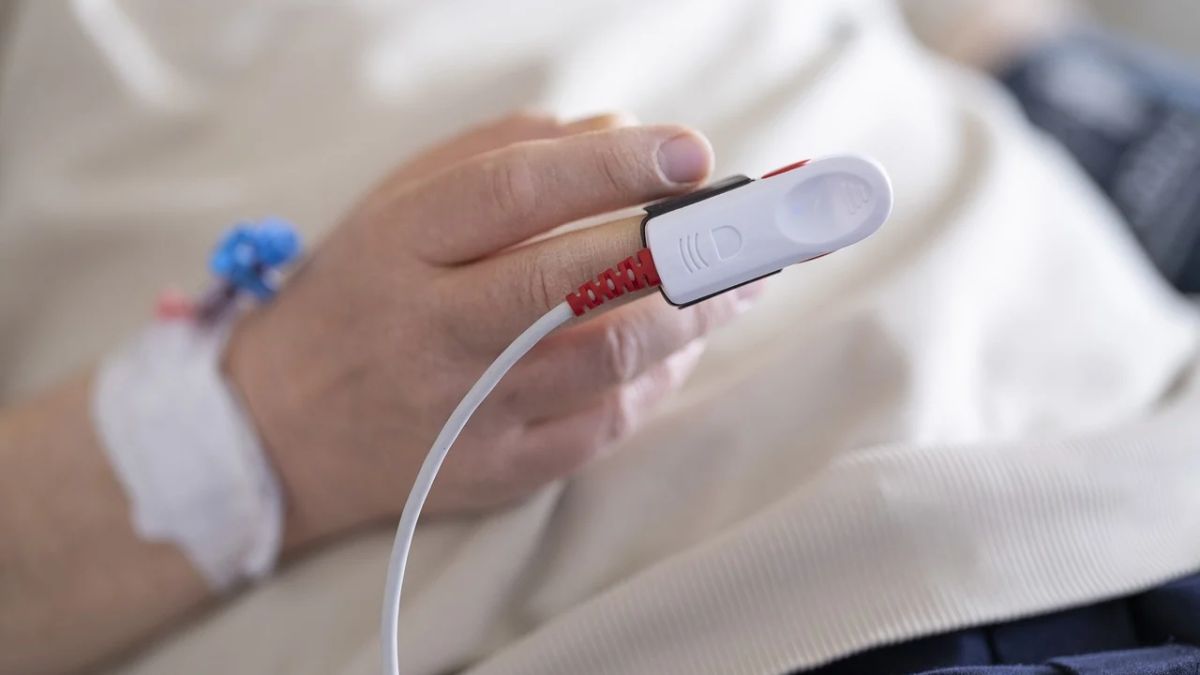The Centre has come up with draft guidelines for passive euthanasia, framing conditions for doctors under which withdrawal of life support in terminally ill patients should be “considered”. However, these draft rules have been criticised by the country’s top medical body.
In India, the Supreme Court allowed passive euthanasia for terminally ill patients in 2018 under strict guidelines. Passive euthanasia includes withdrawing or withholding life-preserving treatments to allow a person to die naturally.
Let’s take a closer look.
What does the Centre say?
The Union Health Ministry has mentioned four conditions for evaluating the option of passive euthanasia for an individual in its ‘Draft Guidelines for Withdrawal of Life Support in Terminally Ill Patients’.
As per the news agency PTI, this includes whether the person has brainstem death – they are on an artificial life support machine and have no brain functions, and when there is a medical prognostication that the patient has an advanced disease condition and is unlikely to benefit from aggressive therapeutic interventions.
The other conditions are patient/surrogate documented informed refusal to continue life support after awareness of medical prognosis and compliance with procedures directed by the Supreme Court.
It states this draft “considered decision in a patient’s best interests, to stop or discontinue ongoing life support in a terminally ill disease that is no longer likely to benefit the patient or is likely to harm in terms of causing suffering and loss of dignity.”
The guidelines say that doctors should make a considered decision to not begin life-supporting treatments (LSTs), including mechanical ventilation and dialysis, in a terminally ill patient if it is unlikely to favour the patient and could lead to suffering and loss of dignity, reported PTI.
“In such circumstances, LSTs are non-beneficial and increase avoidable burdens and suffering to patients and therefore, are considered excessive and inappropriate. Additionally, they increase emotional stress and economic hardship to the family and moral distress to professional caregivers.
“Withdrawal of LST in such patients is regarded as a standard of ICU care worldwide and upheld by several jurisdictions. Such decisions have medical, ethical and legal considerations,” according to the draft.
It defines terminal illness as an “irreversible or incurable” condition in which death is imminent in the foreseeable future. The draft includes severe traumatic brain injury with no recovery after 72 hours or more.
The guidelines also say that the Supreme Court defined legal principles that “an adult patient capable of taking healthcare decisions may refuse LST even if it results in death”.
If a patient is not capable of making such a decision, a group of at least three physicians comprising the Primary Medical Board (PMB) should take the call.
“The PMB must explain the illness, the medical treatment available, alternative forms of treatment, and the consequences of remaining treated and untreated to fully inform the surrogate,” the draft said.
The PMB’s decision has to be endorsed by a Secondary Medical Board of three physicians with one appointee by the district’s Chief Medical Officer (CMO).
The ministry has invited recommendations and feedback from stakeholders on the draft by October 20.
Why is there a backlash?
The head of the Indian Medical Association (IMA) has expressed reservations about the health ministry’s draft guidelines.
RV Asokan, national president of the IMA, told PTI that the proposed regulations will put doctors under legal scrutiny.
“Such clinical decisions have always been taken in good faith by doctors. The patient’s relatives are explained and given all information, taken into confidence in a given case and decision is taken on merit in every single case. Putting it down in sort of guidelines and also alleging that inappropriate decisions have been taken or they have been prolonged is misunderstanding the situation,” he said.
“First the perception and assumption that unnecessarily machines are used and lives are prolonged is wrong. It exposes the doctors to legal scrutiny,” Dr Asokan added.
He said these decisions should be left to relatives, patients, and doctors based on science and situation.
The IMA head said the body will examine the draft and submit their suggestions, seeking a revision of the guidelines, reported PTI.
Passive euthanasia in India
Active euthanasia is the act of deliberately ending a patient’s life to stop their suffering or intolerable pain. It remains illegal in India.
The legality of passive euthanasia was first recognised by the Supreme Court in 2011 while hearing the euthanasia plea for Aruna Shanbaug, a nurse who was brutally sexually assaulted by a ward boy at Mumbai’s King Edward Memorial (KEM) Hospital in November 1973. The attack had left her in a persistent vegetative state (PVS) until she died in 2015.
Although the apex court did not allow for Aruna’s euthanasia, it permitted passive euthanasia in rare cases by withdrawing life support to patients in a persistent vegetative state. However, it had to be done with the approval of a High Court.
In 2018, the Supreme Court recognised “living wills” made by terminally ill patients likely to go into a permanent vegetative state in a landmark judgement.
Declaring the ‘right to die with dignity’ as a fundamental right, the court said, “Life and death are inseparable. Every moment our bodies undergo change… life is not disconnected from death. Dying is a part of the process of living.”
The apex court also laid down guidelines for passive euthanasia, in case the patient has left an ‘advance directive’ or ‘living will’ to withdraw life support if they fall terminally ill, and in case there is no such will.
With inputs from agencies


)

)
)
)
)
)
)
)
)



